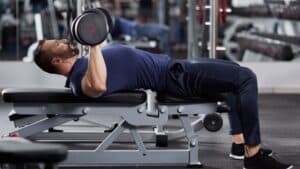Many Australians who live active lifestyles often wonder if exercising before a blood test is a good idea. Blood tests are a common way for doctors to check how your body is functioning, from measuring cholesterol levels to assessing hormone balance. However, physical activity can influence some of these test results, potentially giving a skewed picture of your health. Whether you’re hitting the gym early morning or going for a run along the beach, knowing how exercise affects blood work is important. Preparing properly for your blood test helps ensure your doctor gets accurate information, so you can make the best decisions about your health. This article explores what happens to your body when you exercise before a blood test, which tests are most affected, and how to prepare to get the most reliable results.
What Happens to Your Body When You Exercise?
When you exercise, your body undergoes several changes to support the increased physical demand. Your heart rate rises, pumping more oxygen and nutrients to your muscles. This triggers the release of hormones such as adrenaline and cortisol, which help regulate energy and stress. Additionally, muscles produce enzymes during activity, which can enter your bloodstream. These changes are natural and beneficial for your fitness, but they can temporarily alter some blood components. For example, muscle enzymes that increase during exercise may look like signs of muscle damage in blood tests. Understanding these effects is key to knowing why skipping or modifying your workout before a blood test might be necessary. It’s all about making sure your test results truly reflect your baseline health, not just the temporary changes caused by recent activity.
How Exercise Can Impact Blood Test Results
Exercise can influence a range of blood test results in ways that might mislead your doctor if they’re not aware of your recent activity. For instance, strenuous workouts can elevate levels of creatine kinase, an enzyme linked to muscle damage. White blood cell counts may rise temporarily, which can mimic an infection or inflammation. Hormone levels, including cortisol and adrenaline, also spike during exercise, potentially affecting tests related to stress or thyroid function. Even cholesterol and blood sugar readings can shift after physical activity. These fluctuations usually return to normal after some rest, which is why exercising right before a blood test could result in inaccurate or confusing data. To get the clearest picture of your health, it’s wise to avoid intense exercise before certain blood tests.
Types of Blood Tests Affected by Exercise
Not all blood tests are equally influenced by exercise, but some are particularly sensitive to physical activity. Tests measuring muscle enzymes, such as creatine kinase, can show elevated levels after a workout, even if you have no injury. Lipid profiles, which assess cholesterol and triglycerides, may be temporarily altered by aerobic exercise. Blood glucose levels and insulin can also fluctuate, impacting diabetes-related tests. Inflammatory markers like C-reactive protein (CRP) may increase after intense exercise as well. For these reasons, if your blood tests include liver function, kidney function, or hormone panels, it’s generally recommended to avoid heavy workouts before your appointment. Routine blood tests might not be as affected, but checking with your doctor is always best to ensure accurate results.
Can You Exercise Before a Fasting Blood Test?
Fasting blood tests require you to avoid food and drink (except water) for 12-24 hours prior, to measure your body’s baseline state without external influences. Exercising during this fasting period can cause your body to release stored glucose and stress hormones, which may distort test results related to blood sugar, insulin, and cholesterol levels. Because your body is already in a sensitive fasting state, adding exercise-induced stress can complicate the picture your doctor sees. For Australians preparing for fasting blood tests, it’s usually best to skip workouts to avoid impacting your results. Instead, rest and hydrate with water to help your body maintain a stable state. This simple step can make a big difference in ensuring your test results are as accurate as possible.
Advice From Health Professionals in Australia
Australian health professionals typically recommend avoiding strenuous exercise for at least 24 hours before a blood test, especially when testing hormones, enzymes, or metabolism-related markers. Physical activity can cause temporary spikes or drops in these values, potentially leading to misinterpretation of your health status. General practitioners and pathology clinics often advise patients to rest before blood draws to ensure consistent, reliable results. If you have specific concerns about how exercise might affect your particular tests, it’s always wise to ask your healthcare provider for personalised advice. Following this guidance helps avoid unnecessary repeat testing and ensures your doctor has the clearest information possible to make the right health recommendations.
What to Do Instead: Preparing Properly for Your Blood Test
Rather than exercising right before your blood test, focus on preparation that supports accurate results. If fasting is required, avoid food and drinks except water, and stay well hydrated to make the blood draw easier. Getting a good night’s sleep and managing stress can also help stabilise hormone levels. Avoid caffeine, alcohol, and smoking before your test, as these can influence your blood markers. It’s best to skip intense workouts or heavy physical activity for at least 24 hours beforehand, giving your body time to return to its baseline state. These simple steps will help ensure your blood test accurately reflects your health and provides your doctor with the best information to work from.
Conclusion
Exercise is a crucial part of a healthy lifestyle, but timing matters when it comes to blood tests. Physical activity can temporarily affect various blood components, potentially leading to misleading results if done too close to your test. Australians aiming for accurate health assessments should follow medical advice about avoiding intense exercise before certain blood tests, especially fasting and hormone-related panels. By preparing properly resting, fasting if required, and hydrating you help ensure your results give the clearest picture of your wellbeing. When in doubt, a quick chat with your GP or pathology clinic can help you know exactly how to prepare. Taking these precautions means you can get back to your fitness routine with confidence once your health check is complete.






